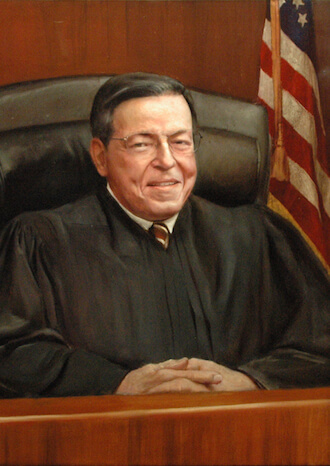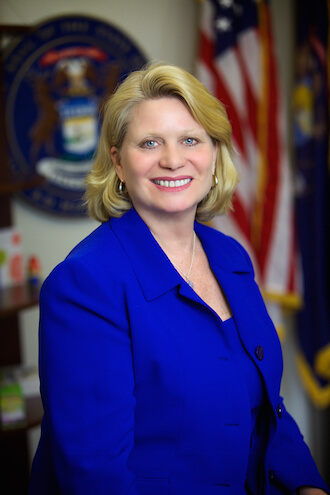In the days leading up to the 11th Circuit's denial of a stay, Alabama Supreme Court Chief Justice Roy S. Moore has sounded defiant resistance to a marriage equality order from the federal courts. | ALABAMA SUPREME COURT
In a brief order, a three-judge panel of the 11th Circuit Court of Appeals has denied the State of Alabama’s request that it stay two recent marriage equality rulings to give the state time to appeal them.
The February 3 order, which provided no explanation, came in regard to two cases decided by Judge Callie V.S. Granade of the Southern District of Alabama –– a January 23 ruling in a suit brought by a lesbian couple who married in California and sought recognition in their home state and a January 27 ruling in a challenge brought by a gay male couple who wanted to marry.
Before her first ruling could take effect, Granade, appointed to the bench by President George W. Bush, stayed it until February 9 to allow the state time to seek a longer stay pending appeal from either the 11th Circuit or the Supreme Court. She made clear, however, that she did not believe that an appeal would be successful and she concluded the lesbian couple, who are raising a young son, would be irreparably harmed by further delay in having their marriage recognized. She issued a similar stay of her second marriage ruling.
The Alabama Probate Judges Association, a professional group representing the county officials responsible for issuing marriage licenses, initially argued that Granade’s ruling did not apply to anyone other than the couple who brought the marriage recognition case, Cari Searcy and Kimberly McKeand. In response, Granade issued a clarifying opinion making clear her order applied statewide, something she was careful to emphasize in her January 27 right to marry decision in the case brought by James Strawser and John Humphrey.
The State of Alabama can now turn to the Supreme Court to seek a longer stay, though since early October the high court has not stayed any marriage equality decisions, including a federal district court ruling from Florida the appeal of which has not yet been heard by the 11th Circuit.
Since its denial of the Florida stay, however, the Supreme Court has agreed to review an adverse marriage ruling from the Sixth Circuit Court of Appeals that reversed victories by same-sex couples in Ohio, Michigan, Tennessee, and Kentucky. Given that resolution of those cases is pending, it’s unclear if the high court will continue to let district court victories from other parts of the country go into effect.
In the wake of the 11th Circuit action today, Searcy and McKeand promptly moved to have Granade end her stay early without waiting for the Supreme Court to weigh in.
In an extraordinary January 27 letter responding to Granade’s first marriage ruling, Alabama Supreme Court Chief Justice Roy S. Moore urged Republican Governor Robert Bentley to resist her order.
“As you know, nothing in the United States Constitution grants the federal government the authority to redefine the institution of marriage,” Moore wrote. Noting that Alabama voters approved a constitutional amendment barring marriage by same-sex couples or its recognition by the state, the chief justice wrote that the state’s high court recognized marriage as “a divine institution” under which spouses have “higher moral and religious obligations than those imposed by any mere human institution or government.” Moore then asserted that state law has always “recognized the Biblical admonition stated by our Lord” that man and woman were created to be joined together in marriage.
“I ask you to continue to uphold and support the Alabama Constitution with respect to marriage, both for the welfare of this state and for posterity,” the chief justice wrote in conclusion. “Be advised that I stand with you to stop judicial tyranny and any unlawful opinions issued without constitutional authority.”
In response to Moore’s action, reminiscent of the late Alabama Governor George Wallace’s defiance of federal desegregation orders in the 1960s, the Southern Poverty Law Center filed a disciplinary complaint against him with the state’s Judicial Inquiry Commission. That body has the authority to discipline Moore, up to and including removal from office.


































